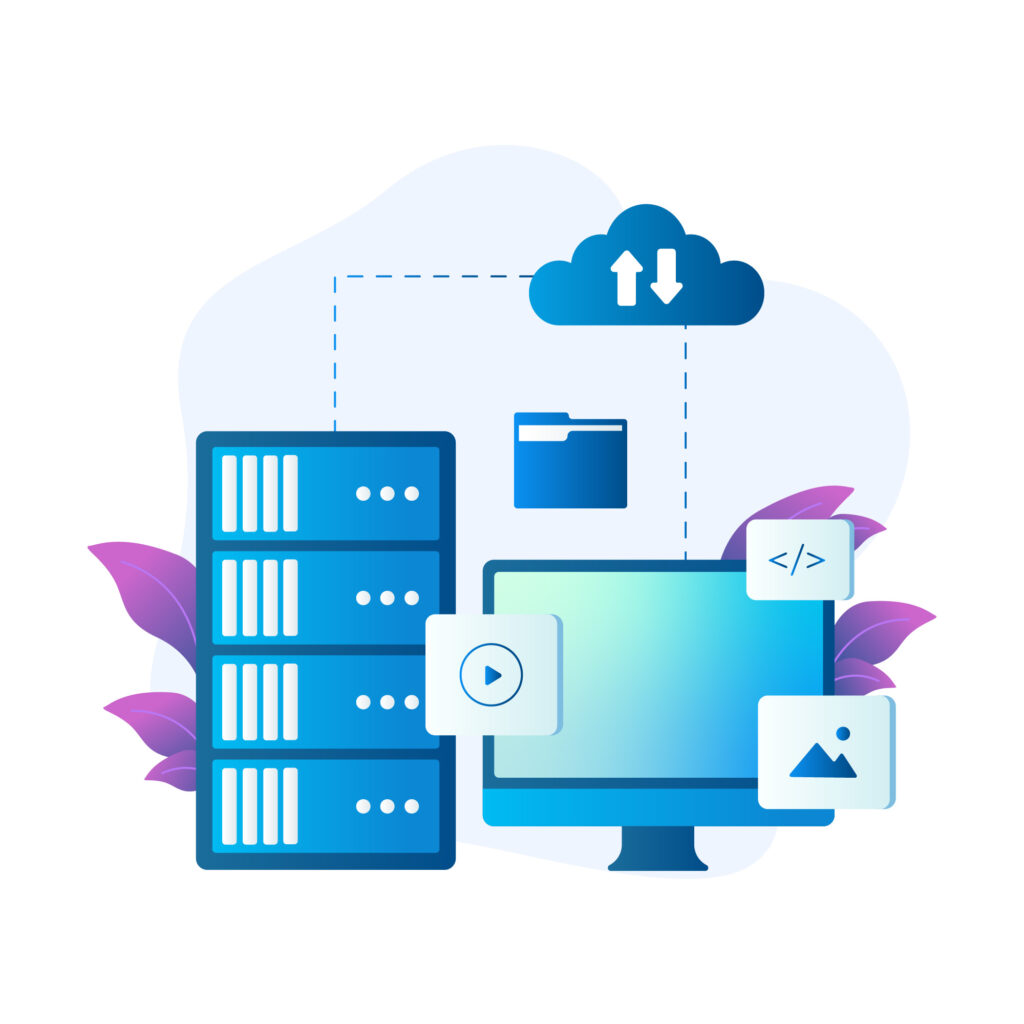
Table of Contents
Cloud Computing Jobs: Unlocking Opportunities in the Digital : jobs
Introduction
In today’s rapidly evolving digital landscape, cloud computing has emerged as a transformative force, revolutionizing the way businesses operate and store their data. As more organizations migrate their infrastructure to the cloud, the demand for skilled professionals in cloud computing has skyrocketed. This article delves into the world of cloud computing jobs, exploring the diverse opportunities available in this burgeoning field and providing valuable insights for aspiring professionals.
The Rise of Cloud Computing
Cloud computing refers to the delivery of computing services, including storage, databases, software, and networking, over the internet. It eliminates the need for physical infrastructure, enabling businesses to access resources on-demand, scale effortlessly, and reduce operational costs. With its numerous benefits, cloud computing has become a vital component of modern-day enterprises.
The Growing Demand for Cloud Computing Professionals
The exponential growth of cloud computing has led to an increased demand for skilled professionals who can navigate this dynamic technology. Organizations are actively seeking individuals who possess the knowledge and expertise to design, implement, and manage cloud-based solutions. Here are some of the most sought-after cloud computing roles in the industry:
1. Cloud Architect
A cloud architect is responsible for designing and overseeing the implementation of cloud-based systems. They work closely with stakeholders to understand business requirements and develop scalable and secure cloud infrastructure solutions. Cloud architects should have a deep understanding of cloud platforms, virtualization, and networking principles.
2. Cloud Developer
Cloud developers specialize in building applications specifically designed for cloud environments. They utilize programming languages and frameworks to create scalable, efficient, and highly available solutions. Cloud developers should be proficient in areas such as software development, cloud APIs, and containerization technologies.
3. Cloud Security Specialist
As data security becomes a paramount concern, organizations require cloud security specialists to safeguard their cloud-based infrastructure and applications. These professionals focus on ensuring the confidentiality, integrity, and availability of data stored in the cloud. Cloud security specialists should possess expertise in encryption, access controls, and vulnerability management.
4. Cloud Data Engineer
Cloud data engineers play a crucial role in managing and analyzing vast amounts of data stored in the cloud. They are responsible for designing data pipelines, integrating data sources, and implementing data governance frameworks. Cloud data engineers should possess strong programming skills, knowledge of data warehousing concepts, and experience with cloud-based data storage solutions.
5. Cloud Operations Manager
Cloud operations managers oversee the day-to-day operations of cloud environments, ensuring their optimal performance and availability. They monitor resource usage, manage incidents, and implement scalability strategies. Cloud operations managers should have a comprehensive understanding of cloud infrastructure, automation tools, and performance optimization techniques.
Key Skills and Qualifications
To excel in cloud computing jobs, certain skills and qualifications are highly valued by employers:
- Proficiency in cloud platforms such as Amazon Web Services (AWS), Microsoft Azure, or Google Cloud Platform (GCP).
- Strong understanding of networking concepts, including virtual private clouds (VPCs), subnets, and load balancers.
- Familiarity with infrastructure-as-code (IaC) tools like Terraform or CloudFormation for automating infrastructure provisioning.
- Experience with containerization technologies like Docker and orchestration tools like Kubernetes.
- Knowledge of scripting languages, such as Python or PowerShell, for automation and orchestration tasks.
- Understanding of security best practices and compliance frameworks relevant to cloud environments.
- Strong problem-solving and analytical skills to troubleshoot and resolve complex cloud-related issues.
Conclusion
The world of cloud computing offers a wealth of opportunities for professionals seeking to build a rewarding career in the digital age. As organizations continue to embrace cloud technologies, the demand for skilled individuals will only grow stronger. By acquiring the necessary skills, staying updated with industry trends, and pursuing relevant certifications, aspiring cloud computing professionals can position themselves at the forefront of this transformative field. Embrace the cloud revolution and unlock a world of exciting possibilities in cloud computing jobs.

Skills for Cloud Computing Jobs: Mastering the Path to Success
Introduction
In the ever-evolving landscape of technology, cloud computing has emerged as a game-changer. As the demand for cloud services continues to grow, so does the need for skilled professionals who can harness the power of the cloud. In this comprehensive guide, we delve into the essential skills required for success in cloud computing jobs, helping you outrank your competitors and secure your place in this thriving industry.
1. Cloud Platform Expertise
To excel in cloud computing jobs, it is essential to have a deep understanding of cloud platforms such as Amazon Web Services (AWS), Microsoft Azure, and Google Cloud Platform (GCP). Familiarize yourself with the core services, architectural principles, and deployment models offered by each platform. Stay updated with the latest features and advancements, and obtain relevant certifications to showcase your expertise.
2. Infrastructure-as-Code (IaC)
Infrastructure-as-Code (IaC) is a crucial skill for cloud professionals. Tools like Terraform and CloudFormation allow you to define and provision cloud infrastructure programmatically. Mastering IaC enables you to automate resource creation, manage infrastructure changes, and ensure consistency across environments. Embrace this skill to streamline your cloud operations and enhance efficiency.
3. Networking and Security
A strong foundation in networking principles and cloud security is indispensable. Understand virtual networks, subnets, and routing in the cloud environment. Dive into security concepts like identity and access management (IAM), encryption, and threat detection. Stay up to date with industry best practices and compliance requirements to protect cloud assets and mitigate risks.
4. Application Development and Containers
Cloud computing jobs often require proficiency in application development and containerization technologies. Gain expertise in programming languages such as Python, Java, or C#. Familiarize yourself with containerization platforms like Docker and container orchestration frameworks like Kubernetes. These skills enable you to build, deploy, and manage scalable and portable cloud-native applications.
5. Big Data and Analytics
In the era of data-driven decision-making, cloud professionals with knowledge of big data and analytics are highly sought after. Learn about cloud-based data storage and processing solutions such as Amazon S3 and Apache Spark. Acquire skills in data ingestion, transformation, and analysis to help organizations derive valuable insights from their data assets.
6. DevOps and Continuous Integration/Continuous Delivery (CI/CD)
Cloud computing is closely intertwined with DevOps practices and CI/CD pipelines. Familiarize yourself with tools like Jenkins, Git, and Docker, and understand the principles of continuous integration, continuous delivery, and continuous deployment. With these skills, you can automate application testing, build processes, and deployment pipelines, ensuring faster and more reliable software delivery.
7. Problem-Solving and Troubleshooting
Cloud professionals must possess strong problem-solving and troubleshooting abilities. Develop a systematic approach to identify and resolve issues in cloud infrastructure and applications. Enhance your analytical skills, learn to navigate through cloud provider documentation and community resources, and stay calm under pressure to effectively troubleshoot complex problems.
8. Collaboration and Communication
Successful cloud professionals are effective collaborators and communicators. Cloud computing jobs often involve working in cross-functional teams and engaging with stakeholders. Enhance your interpersonal skills, practice active listening, and cultivate strong written and verbal communication skills. The ability to articulate complex technical concepts in a clear and concise manner sets you apart in this field.
cloud computing jobscloud computing jobscloud computing jobscloud computing jobscloud computing jobs

